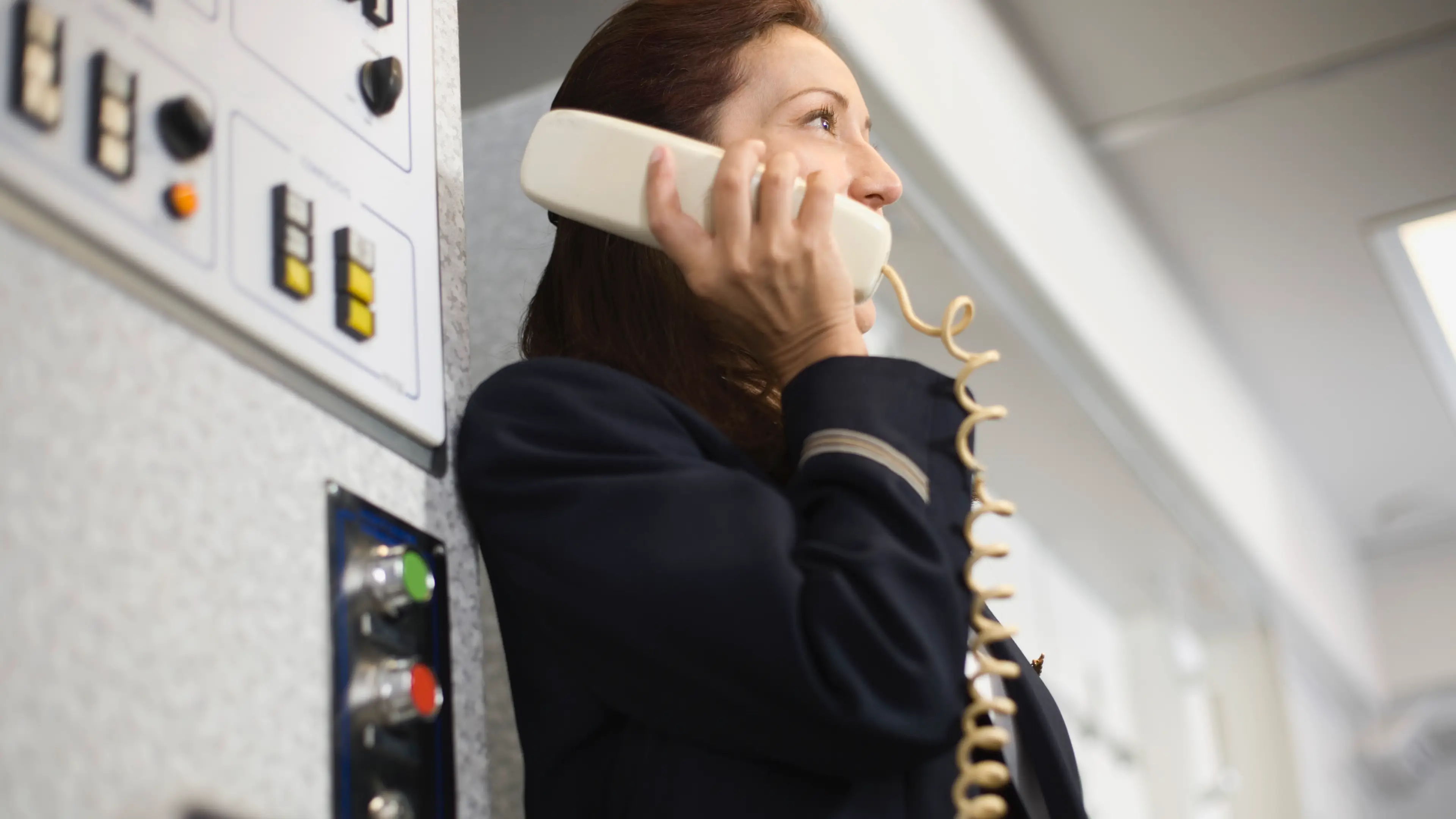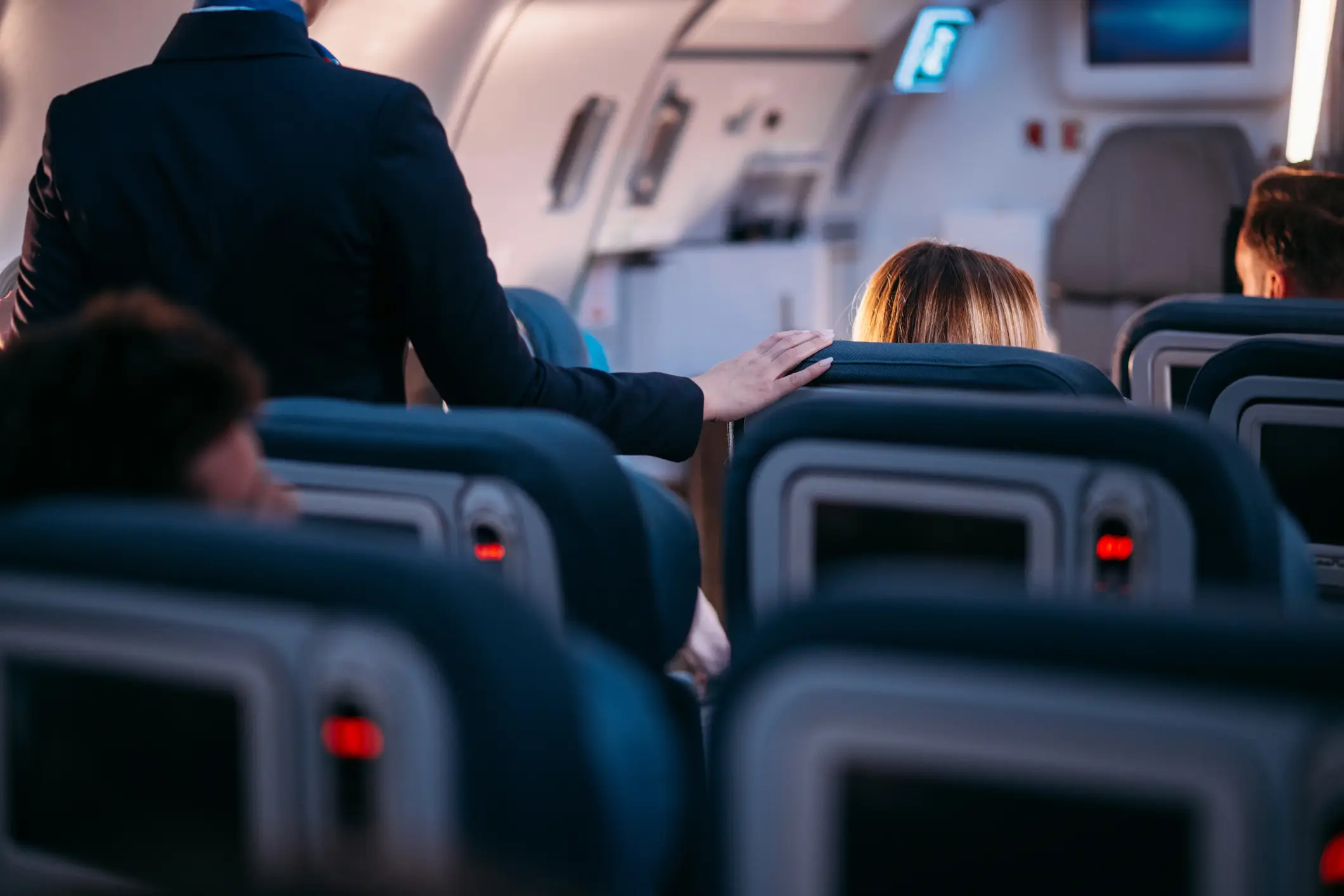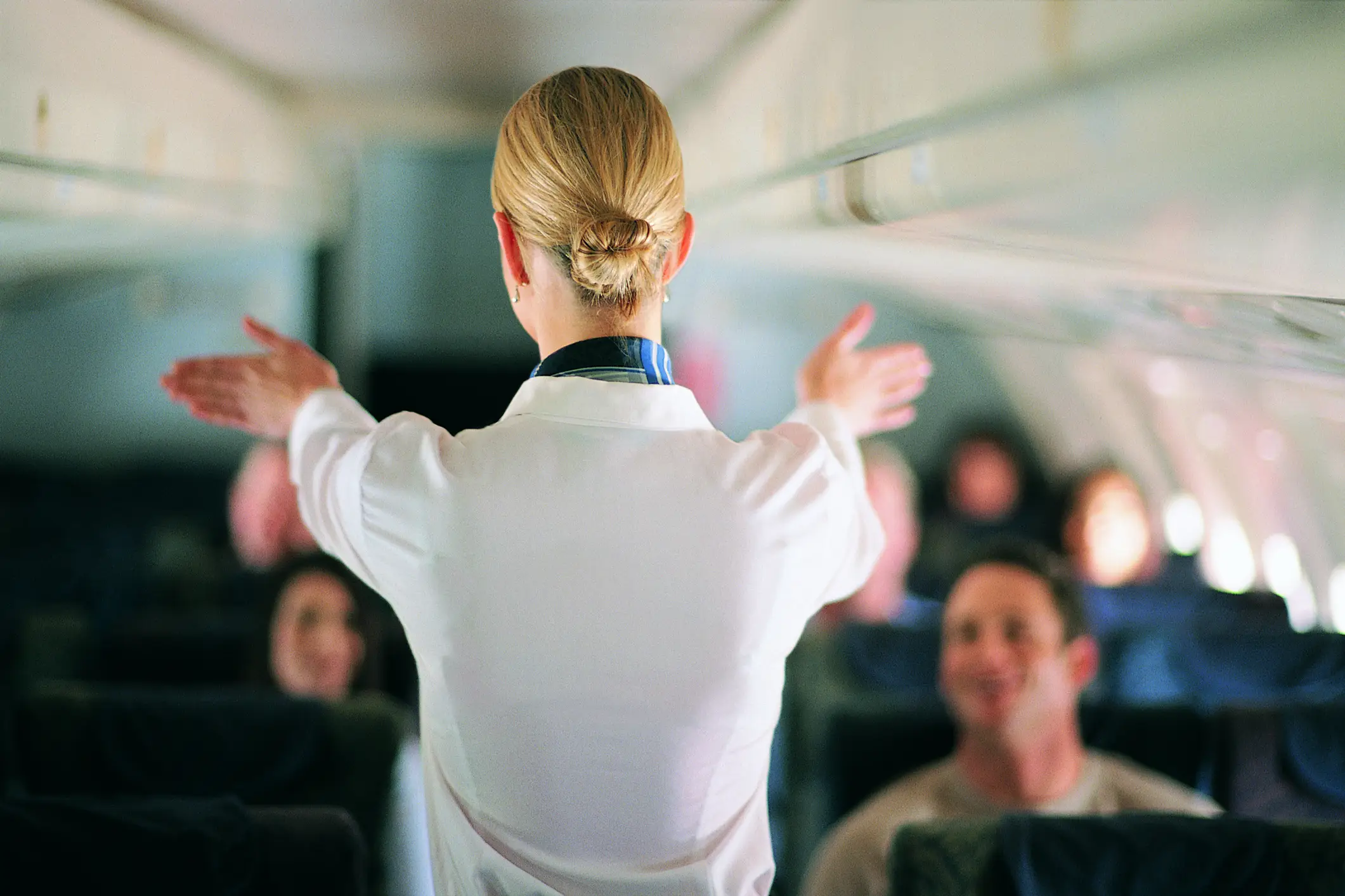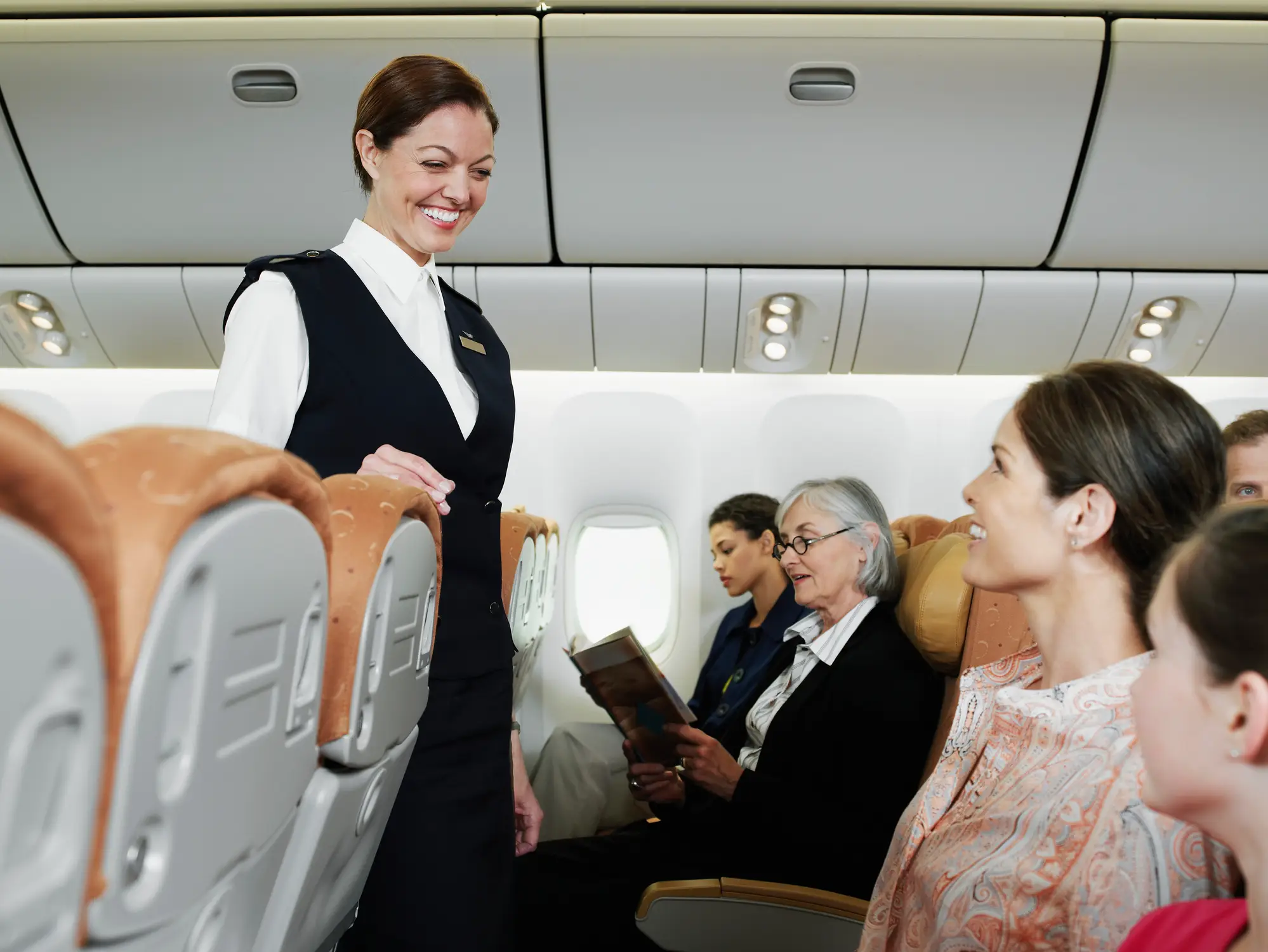
Flight attendants are said to use various codewords to communicate sensitive information on a plane without alarming passengers, and there's a handful you definitely don't want to hear while settling into your flight.
As a future passenger reading this, we hope you don't hear any of these terms while travelling.
So the main reason why cabin crews use codewords is to hopefully handle the situation while keeping things as chilled as possible.
Specific words and protocols are put into place for worst-case scenarios, or just things that you might not need to know about.
Advert
According to travel experts at Wander, 'Code 300' and 'Squawk 7500' are - specifically - the two codes that you really don't want to hear.

'Angel' or 'Code 300'
'Code 300' and 'Angel' are two phrases which signal that a passenger has died on board.
Under certain circumstances, it might be required for plane safety not to inform the passengers of what has happened.
'Squawk 7500' or 'Hotel'
Arguably even more worrying are the two codes 'Squawk 7500' and 'Hotel'.
As sad as it is for a single passenger to die on board, these codes could indicate something a lot worse.

'Squawk 7500' and 'Hotel' apparently mean that a hijacking is in progress, which would risk further deaths.
Wander warns: "If you ever hear this code mentioned by the flight crew or air traffic control, it signals a potential security threat on the flight.
"The aircraft’s transponder will send a signal with this code to alert authorities that the plane is in danger."
'Code Adam'
Another serious one, 'Code Adam' is for when a child goes missing on a plane.
Once the codeword is communicated, airline staff are supposed to search the plane to become aware of any potential abduction scenarios.
"This term is derived from the Adam Walsh Child Safety Act," the experts explain.
'Pan-Pan'
"While not as critical as a 'MAYDAY', a 'Pan-Pan' call indicates that something is wrong on board, whether it's mechanical trouble or a medical emergency, but the flight is not in imminent danger," the experts note.
'Code Yellow'

Now the most concerning codes are out of the way, 'Code Yellow' simply means that a passenger isn't feeling well on board.
Particularly if someone is experiencing a bit of air sickness or lightheadedness.
'Mermaid'
The 'Mermaid' term is for passengers who 'deliberately sprawl out across empty seats to deter others from sitting in their row'.
Perhaps a code for someone being a bit annoying.
'VIP'
Instead of meaning 'very important person', in airline terms, 'VIP' is quite the opposite.
The abbreviation translates to 'Very Irritating Passenger', with someone being particularly difficult with the cabin crew.
Topics: Travel, Holiday, Plane Etiquette